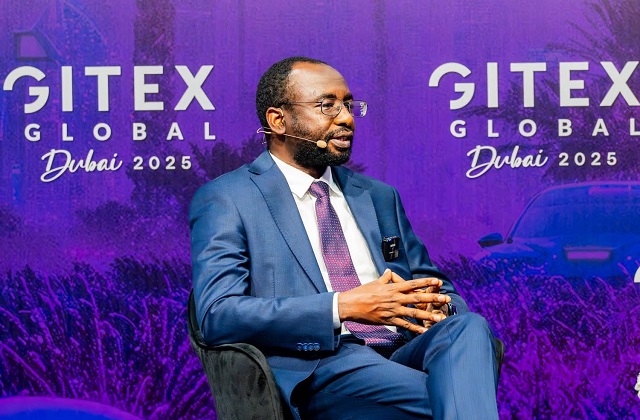Nigeria is taking decisive steps to redefine its place in the global Artificial Intelligence (AI) landscape, with the government unveiling plans to develop an indigenous Large Language Model (LLM) tailored to the nation’s linguistic and cultural diversity.
The Director General of the National Information Technology Development Agency (NITDA), Kashifu Inuwa Abdullahi, disclosed this during a Fireside Chat at the AI Stage of the Gulf Information Technology Exhibition (GITEX) 2025 in Dubai, where he reaffirmed Nigeria’s commitment to using AI as a catalyst for innovation, national development, and global competitiveness.
“Nigeria has over 500 languages and countless dialects. If we rely only on foreign AI models, they won’t understand our nuances, culture, or people,” Inuwa said. “That is why we are building M-ATLAS, an indigenous LLM that reflects our diversity and eliminates bias. We want an AI that understands the meaning of ‘akwa,’ ‘ekaabo,’ or ‘sannu,’ not just translates them.”
Speaking on the theme of Nigeria’s AI Journey, Inuwa noted that the country’s approach to AI adoption is both deliberate and strategic. “Our vision is clear on how we can harness the transformative power of AI through responsible, ethical, and inclusive innovation to foster sustainable development through collaboration,” he explained.
He outlined that Nigeria’s National AI Strategy rests on five guiding principles: responsibility, ethics, inclusivity, sustainability, and collaboration. According to him, “these are not just words, they are our compass. Everything we are doing in AI must reflect these values. We are not just building systems; we are shaping a future that works for everyone.”
The strategy, he said, is anchored on three key objectives and five strategic pillars designed to build foundational infrastructure, strengthen the ecosystem, accelerate adoption across critical sectors, promote ethical and responsible AI, and ensure robust governance.
Highlighting the practical impact of AI, Inuwa revealed that the technology is already transforming several sectors.
“In agriculture, we are helping farmers make informed decisions using real-time data on soil, weather, and crop health. In healthcare, AI is enabling faster diagnosis and extending services to rural areas. In education, we are embedding AI literacy into formal learning so our young people are not left behind. And in finance, AI tools are detecting fraud, improving credit access, and driving financial inclusion,” he said.
The NITDA boss added that the Nigerian government is also exploring AI solutions to enhance public service delivery. “Imagine a future where citizens can obtain passports or business permits in minutes rather than weeks,” he said. “AI can help make that a reality. We see it as an opportunity to rebuild trust between government and citizens by making public services smarter, faster, and more transparent.”
Inuwa also highlighted Nigeria’s remarkable AI adoption rate, disclosing that 70% of the country’s online population already uses generative AI tools, surpassing the global average of 48%, and attributed this to Nigeria’s young, tech-savvy population and proactive investments in digital skills.
He referenced flagship initiatives such as the Digital Literacy for All (DL4ALL) programme, which targets 95% national digital literacy by 2030; the 3 Million Technical Talent (3MTT) initiative, one of the world’s largest digital upskilling drives; and the government’s new policy to integrate digital literacy into all levels of education.
Reflecting on Africa’s potential, Inuwa compared the continent’s growing AI momentum to its rapid mobile technology adoption two decades ago. “The difference this time is that we are building from within, shaping the rules, not catching up with them,” he asserted.
“AI is not about machines replacing humans; it is about amplifying human potential,” Inuwa added. “It is strategy first, technology second. Our mission is to use AI responsibly to drive prosperity, inclusivity, and sustainable development. If we get it right, AI can help Nigeria achieve tenfold or even hundredfold improvement in productivity and innovation. That is the future we’re building.”

